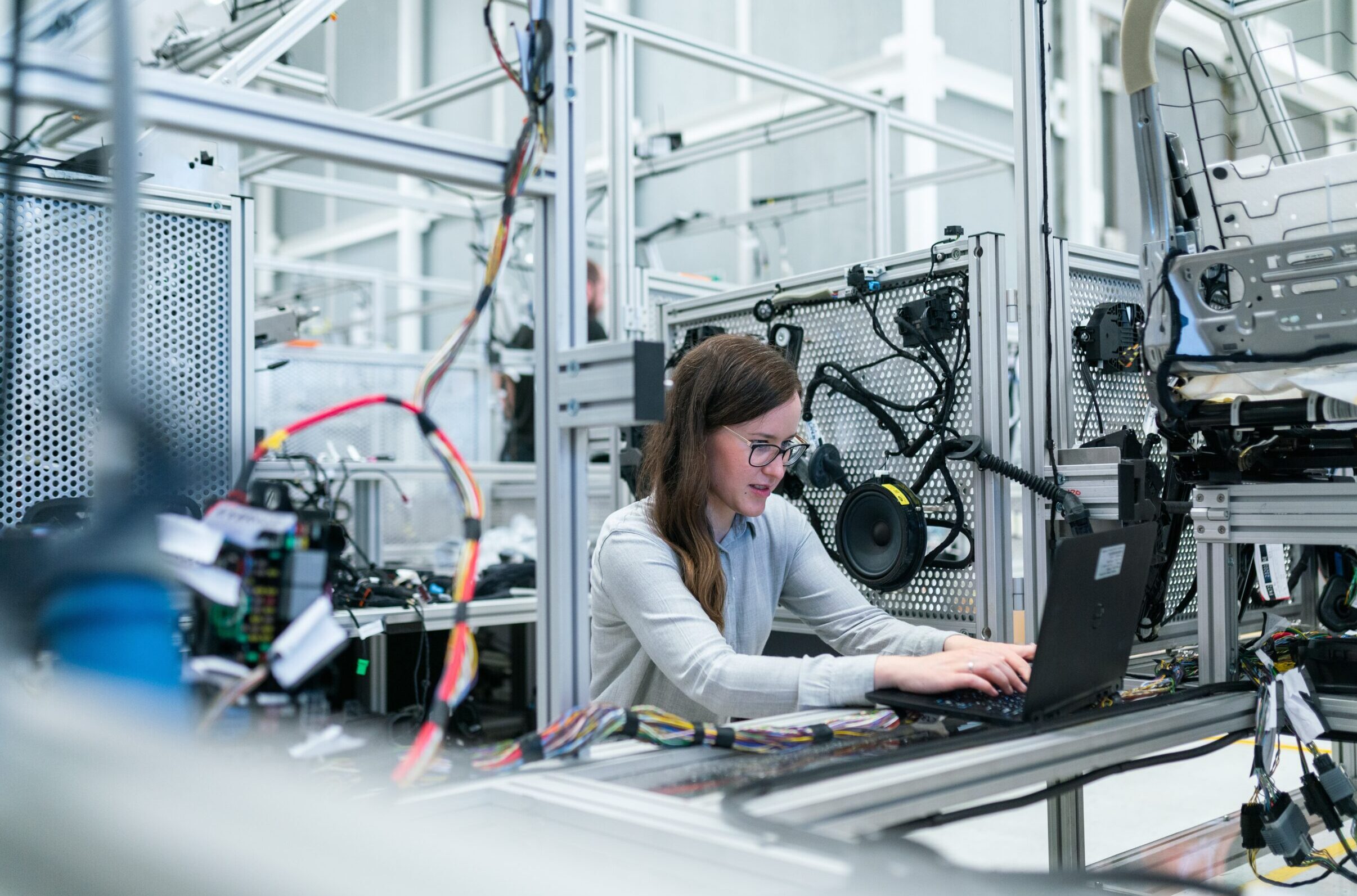In today’s fast-paced society, technological advancements play a pivotal role in shaping economies and propelling growth. From groundbreaking innovations to disruptive inventions, technology has become an inseparable force driving economic progress across the globe.
In this blog post, we will explore the fascinating relationship between technology and economic development. We’ll uncover how technology acts as a catalyst for growth, examine its profound impact on various sectors of the economy, and delve into what lies ahead in the future of tech-driven development. So, strap yourselves in as we embark on this exciting journey through the ever-evolving landscape of technological advancement!
Get ready to discover how staying ahead of the curve can empower nations and individuals alike with unparalleled opportunities for prosperity. Whether you’re an entrepreneur seeking new avenues for business expansion or simply curious about how technology shapes our daily lives, this article is packed with insights that will leave you inspired and informed.
So let’s dive deep into understanding how embracing innovation sets us on a path towards sustained economic success – because when it comes to harnessing the power of technology for development, knowledge truly is power!
The Relationship Between Technology and Economic Development
The relationship between technology and economic development is a complex and intricate one. It goes beyond mere correlation; it’s a symbiotic partnership that drives progress and prosperity. Technology acts as the fuel that propels economies forward, igniting innovation, productivity, and efficiency.
When we look back at history, we can see how technological breakthroughs have revolutionized industries and transformed societies. From the invention of the steam engine during the Industrial Revolution to the advent of digital technologies in recent decades, each wave of innovation has brought about profound changes in how businesses operate and individuals live their lives.
One key aspect of this relationship is how technology enables countries to leapfrog traditional stages of development. With access to cutting-edge tools and knowledge, developing nations can bypass outdated infrastructure systems and adopt more efficient solutions right from the start. This accelerates growth rates, creates new opportunities for investment, job creation, and ultimately leads to higher living standards for citizens.

Moreover, technology acts as an enabler for global trade by breaking down barriers across borders. E-commerce platforms allow small businesses to reach customers around the world with ease while advancements in logistics ensure faster delivery times. Digital payment systems facilitate secure transactions across different currencies without cumbersome intermediaries.
In addition to driving economic growth directly through increased productivity and trade facilitation, technology also fosters innovative ecosystems that give rise to new industries altogether. Startups leveraging emerging technologies like artificial intelligence (AI), blockchain, or renewable energy are reshaping entire sectors while generating employment opportunities for skilled workers.
Looking ahead into the future, we can expect even greater integration between technology and economic development. As automation becomes more prevalent across various industries – from manufacturing to healthcare – policymakers will need to adapt swiftly by investing in education programs that equip workers with skills relevant for these tech-driven roles.
To harness the full potential of technology for economic development requires strategic planning at both national and international levels. Governments play a crucial role in creating an enabling environment through policies that support research and development, foster innovation hubs, and ensure access to affordable high
Technology as a Driver of Economic Growth

In today’s rapidly evolving world, technology plays a pivotal role in driving economic growth. From the invention of the steam engine to the rise of artificial intelligence, technological advancements have consistently revolutionized industries and transformed economies.
One way technology drives economic growth is through increased productivity. Innovation leads to the development of more efficient processes and tools, allowing businesses to produce more goods and services with fewer resources. This not only boosts profits but also creates job opportunities and raises living standards.
Moreover, technology facilitates globalization by enabling faster communication and transportation across borders. It has connected markets worldwide, allowing businesses to reach new customers and tap into previously untapped sources of demand. This expansion of trade stimulates economic activity and fosters international cooperation.
Additionally, technology fuels entrepreneurship by lowering barriers to entry for startups. With access to affordable software solutions, cloud computing platforms, and e-commerce infrastructure, entrepreneurs can launch their ventures with minimal upfront costs. This promotes innovation-driven competition that spurs economic dynamism.
Furthermore, emerging technologies like blockchain, Internet of Things (IoT), 3D printing, and renewable energy are reshaping entire industries. These disruptive innovations create new business models while rendering outdated ones obsolete. By embracing such transformative technologies early on, countries can gain a competitive advantage in global markets.
To stay ahead of the curve in this era driven by technology-enabled advancements requires continuous investment in research & development (R&D) initiatives that foster innovation ecosystems within countries or regions. Governments should prioritize funding for STEM education programs that equip students with skills needed for future jobs.
Overall, technology has become an indispensable driver of economic growth. It propels productivity gains, facilitates globalization, nurtures entrepreneurship, and empowers industries through disruptive innovations. As we move towards an increasingly digital economy, it is imperative for policymakers to embrace these advancements and establish policies that support tech-driven economic development
The Impact of Technology on Economic Development

Technology has revolutionized the way we live and work, and its impact on economic development cannot be overstated. From increasing productivity to creating new industries, technology plays a crucial role in driving economic growth.
One major impact of technology on economic development is increased efficiency. With advancements in automation and digitalization, businesses can streamline their processes and reduce costs. This not only improves their profitability but also allows them to compete more effectively in the global market.
Moreover, technology has opened up new avenues for innovation and entrepreneurship. Startups have sprung up across various sectors, developing disruptive technologies that challenge traditional business models. These innovative companies not only create jobs but also drive competition and push established players to stay ahead.
Additionally, technology enables access to information like never before. The internet has democratized knowledge, allowing individuals from all walks of life to learn new skills or start online businesses with minimal capital investment. This inclusivity fosters economic growth by empowering people who were previously marginalized.
Furthermore, technology facilitates trade and globalization by breaking down geographical barriers. E-commerce platforms connect buyers and sellers from different parts of the world seamlessly, expanding market reach for businesses while providing consumers with a wider range of choices.
Technological advancements have led to improvements in healthcare outcomes which positively impact economic development as well. Through telemedicine services and medical innovations such as wearable devices or AI-assisted diagnostics systems; healthcare becomes more accessible even in remote areas leading to a healthier population contributing actively towards the workforce productivity.
The impact of technology on economic development is undeniable – it drives efficiency gains, promotes innovation and entrepreneurship while fostering inclusivity within economies worldwide.
The Future of Technology and Economic Development

As we look ahead to the future, it’s clear that technology will continue to play a pivotal role in economic development. With each passing day, new advancements are being made that have the potential to revolutionize industries and drive growth.
One area where we can expect significant developments is artificial intelligence (AI). AI has already begun to make its mark across various sectors, from healthcare to finance. As this technology continues to evolve, we can anticipate even greater automation and efficiency in processes, leading to increased productivity and economic prosperity.
Another exciting field with immense potential is renewable energy. With concerns about climate change growing ever more pressing, there is a strong push towards developing sustainable energy sources. Advancements in solar power, wind energy, and battery storage have already started transforming the way we generate and consume electricity. The transition towards clean energy not only benefits the environment but also opens up new opportunities for job creation and economic growth.
Furthermore, the Internet of Things (IoT) presents limitless possibilities for economic development. By connecting everyday objects through internet-enabled devices, IoT allows for real-time data collection and analysis. This connectivity has enormous implications across various sectors such as agriculture, logistics, manufacturing – enabling businesses to optimize their operations while increasing productivity.
In addition to these areas of innovation, emerging technologies like blockchain technology hold promise for transforming industries such as finance by enhancing security and transparency in transactions.
However promising these technological advancements may be for economic development; challenges must be addressed along the way: ensuring widespread access to digital infrastructure; fostering digital literacy among all members of society; managing cybersecurity threats; promoting ethical considerations surrounding AI implementation – just some examples of critical issues requiring attention moving forward.
As we forge into an increasingly tech-driven future economy – one thing remains clear: embracing technological change will be vital for staying ahead of the curve when it comes to global competitiveness – both on an individual level as professionals or entrepreneurs–as well as on a national or regional level. By investing in research and development, supporting
Policy Recommendations for Supporting Technology-Driven Economic Development

As we look to the future of technology and economic development, it is important for policymakers to take proactive measures to support this vital relationship. Here are some key policy recommendations that can help foster a thriving environment for technology-driven economic growth:
1. Invest in research and development: Governments should allocate significant resources towards funding research and development initiatives. This will not only spur innovation but also lead to the creation of new technologies that can drive economic growth.
2. Foster collaboration between academia and industry: Encourage partnerships between universities, research institutions, and businesses. This collaboration can facilitate knowledge transfer, promote entrepreneurship, and accelerate technological advancements.
3. Provide access to affordable broadband internet: Accessible high-speed internet connectivity is crucial in today’s digital age. Governments should work towards bridging the digital divide by expanding broadband infrastructure in rural areas and ensuring affordability for all citizens.
4. Support small and medium-sized enterprises (SMEs): SMEs often play a vital role in driving technological innovation within an economy. Policies should be implemented to provide financial incentives, training programs, and mentorship opportunities specifically tailored to support these businesses.
5. Embrace digital transformation across sectors: Encouraging industries such as healthcare, agriculture, manufacturing, transportation, etc., to embrace technology-driven solutions can greatly enhance their productivity levels while contributing significantly to overall economic growth.
6. Promote STEM education: Investing in science, technology, engineering, and mathematics (STEM) education from an early stage is essential for developing a skilled workforce capable of harnessing emerging technologies effectively.
7. Impose regulations that balance innovation with consumer protection: While encouraging innovation is crucial; policymakers must strike a balance by implementing necessary regulations that safeguard consumer rights without stifling technological advancements.
